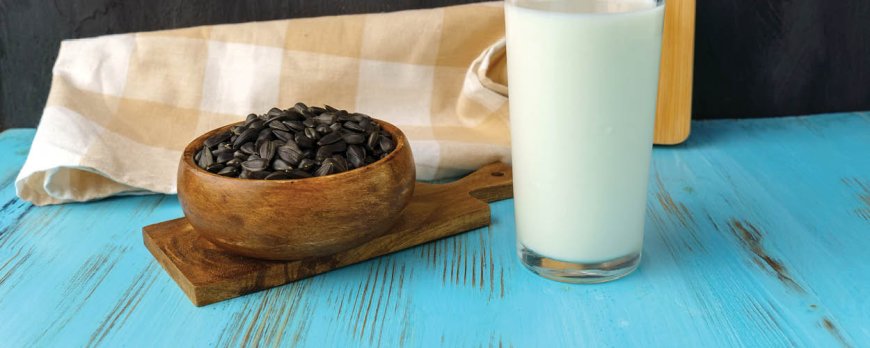Does magnesium help muscle pain?
Does magnesium help muscle pain? Discover how this essential mineral may alleviate discomfort and promote muscle health. Find out more.

Does Magnesium Help Muscle Pain?
Muscle pain can be debilitating, but can magnesium provide relief? In this article, we explore the potential benefits of magnesium supplements in alleviating muscle pain.
Key Takeaways:
- Magnesium plays a key role in producing energy and maintaining normal muscle and nerve function.
- Correcting magnesium deficiencies can improve conditions such as fibromyalgia, chronic pain, and headaches.
- Magnesium supplements come in various forms with different absorption and therapeutic values, including magnesium citrate, magnesium bisglycinate, and magnesium malate.
- Foods high in magnesium, such as nuts and seeds, dark green leafy vegetables, legumes, and fish, can support muscle health.
- Magnesium can help with muscle pain by improving sleep quality, boosting workout performance, reducing inflammation, and relieving PMS symptoms.
The Role of Magnesium in Muscle Health
Magnesium is an essential mineral that plays a vital role in promoting muscle health and alleviating muscle pain and discomfort. It is involved in over 300 biochemical reactions in the body, including energy production and muscle and nerve function.
One of the key benefits of magnesium for muscle health is its ability to help relieve muscle cramps. Magnesium acts as a natural muscle relaxant, reducing muscle contractions and spasms that can cause pain and discomfort. It also aids in muscle recovery after physical activity by supporting the repair and regeneration of muscle tissues.
In addition to its role in relieving muscle cramps and aiding in muscle recovery, magnesium can also help treat muscle spasms. By regulating the flow of calcium in and out of muscle cells, magnesium helps to prevent excessive muscle contractions that can lead to spasms.
The Relationship Between Magnesium and Muscle Pain
- Magnesium promotes muscle relaxation, reducing muscle cramps and spasms that cause pain.
- It supports muscle recovery after exercise or physical activity.
- Magnesium regulates calcium levels in muscle cells, preventing excessive muscle contractions that can result in spasms.
It is important to note that while magnesium supplements can be beneficial for muscle pain relief, consulting with a healthcare professional is recommended to determine the appropriate form and dosage of magnesium for individual needs. Additionally, incorporating magnesium-rich foods into the diet, such as nuts, seeds, dark green leafy vegetables, legumes, and fish, can also contribute to overall muscle health and potentially alleviate muscle pain.
Correcting Magnesium Deficiencies for Pain Relief
Magnesium deficiencies have been linked to muscle pain, and addressing these deficiencies can be instrumental in managing and alleviating discomfort. Magnesium plays a crucial role in nerve and muscle function, and when levels are low, it can contribute to muscle cramps, spasms, and overall pain. By correcting magnesium deficiencies, individuals may experience significant relief from muscle-related discomfort.
One way to address magnesium deficiencies is through the use of magnesium supplements. These supplements come in various forms, such as magnesium citrate, magnesium bisglycinate, and magnesium malate. Each form has different absorption rates and therapeutic values, so it's important to consult with a healthcare professional to determine the most suitable option for individual needs. By supplementing with the right form of magnesium, individuals can replenish their magnesium levels, potentially reducing muscle pain and promoting overall muscle health.
In addition to supplements, incorporating magnesium-rich foods into the diet can also help correct deficiencies and alleviate muscle pain. Foods high in magnesium include nuts and seeds, dark green leafy vegetables, legumes, and fish. Adding these foods to meals and snacks can provide a natural source of magnesium that supports muscle health and reduces the likelihood of deficiencies.
To effectively manage muscle pain through magnesium supplementation, it is essential to consult with a healthcare professional. They can assess magnesium levels, recommend the appropriate form and dosage, and monitor progress. By taking proactive steps to correct magnesium deficiencies, individuals can potentially experience significant relief from muscle pain and discomfort.

Different Forms and Absorption of Magnesium
Magnesium supplements come in various forms, each with its own absorption rate and therapeutic value. Three commonly used forms of magnesium supplements are magnesium citrate, magnesium bisglycinate, and magnesium malate. Understanding the differences between these forms can help individuals choose the most suitable option for their specific needs.
Magnesium citrate: This form of magnesium is known for its high bioavailability, meaning it is easily absorbed by the body. It is often recommended for individuals with low stomach acid or those who experience digestive issues, as it can help improve absorption. Magnesium citrate is commonly used to support muscle relaxation and alleviate constipation.
Magnesium bisglycinate: This form of magnesium is bonded with the amino acid glycine, which enhances its absorption. Magnesium bisglycinate is often preferred by individuals who are sensitive to the laxative effects associated with other forms of magnesium. It is well-tolerated and can be used to support muscle relaxation, promote restful sleep, and help manage stress.
Magnesium malate: This form of magnesium is combined with malic acid, a compound found in fruits and vegetables. Magnesium malate is known for its ability to support energy production and alleviate muscle pain and fatigue. It is often recommended for individuals with conditions such as fibromyalgia or chronic fatigue syndrome.
Choosing the Right Form of Magnesium
When selecting a magnesium supplement, it is important to consider individual needs and preferences. Factors such as absorption rate, tolerability, and desired therapeutic effects can guide the decision-making process. Consulting with a healthcare professional can provide personalized recommendations based on specific health concerns and goals.
- Consider magnesium citrate for enhanced absorption and digestive support.
- Choose magnesium bisglycinate for gentle and well-tolerated supplementation.
- Opt for magnesium malate to support energy production and alleviate muscle pain and fatigue.
Remember, magnesium supplements should be taken as directed and in conjunction with a balanced diet. While magnesium can help with the management of muscle pain, it is essential to address the underlying cause of the pain and consult with a healthcare professional for a comprehensive treatment plan.
Dietary Sources of Magnesium
In addition to supplements, magnesium can also be obtained from various dietary sources, including nuts and seeds, dark green leafy vegetables, legumes, and fish. Incorporating these magnesium-rich foods into your diet can provide a natural way to support muscle health and potentially alleviate muscle pain.
Here are some examples of foods that are high in magnesium:
- Nuts and seeds: Almonds, cashews, pumpkin seeds, and flaxseeds are all excellent sources of magnesium.
- Dark green leafy vegetables: Spinach, kale, Swiss chard, and collard greens are packed with magnesium and other essential nutrients.
- Legumes: Black beans, chickpeas, lentils, and kidney beans are not only a great source of plant-based protein but also provide a good amount of magnesium.
- Fish: Certain types of fish, such as salmon, mackerel, and halibut, are rich in magnesium and also offer omega-3 fatty acids, which have additional benefits for muscle health.
By incorporating these magnesium-rich foods into your meals and snacks, you can support your overall muscle health and potentially reduce muscle pain. Remember to include a variety of these foods in your diet to ensure you are getting an adequate intake of magnesium.
Improving Sleep Quality with Magnesium
Adequate sleep is crucial for muscle recovery, and magnesium supplements have been shown to improve sleep quality, potentially providing relief from muscle pain. Magnesium plays a key role in promoting relaxation and reducing muscle tension, making it an essential mineral for a restful night's sleep.
One way magnesium enhances sleep is by regulating the production of melatonin, a hormone that helps control sleep-wake cycles. Studies have shown that magnesium supplementation can increase melatonin levels, leading to improved sleep duration and quality. In addition, magnesium has been found to enhance the function of GABA, a neurotransmitter that promotes relaxation and reduces anxiety, further aiding in better sleep.
When choosing a magnesium supplement for sleep, you may consider forms such as magnesium citrate or magnesium bisglycinate, which are known for their calming effects. These forms are easily absorbed by the body and have been shown to promote relaxation, leading to better sleep quality. It is always advisable to consult with a healthcare professional before starting any new supplement regimen.
To optimize your magnesium intake for better sleep, you can also incorporate magnesium-rich foods into your diet. Dark green leafy vegetables, such as spinach and kale, as well as nuts and seeds like almonds and pumpkin seeds, are excellent sources of magnesium. Adding these foods to your meals or enjoying a handful of nuts as a snack can help support muscle health and improve sleep quality.

Boosting Workout Performance with Magnesium
If you're looking to optimize your workout performance, incorporating magnesium into your routine may provide significant benefits for muscle health. Magnesium plays a crucial role in energy production and maintaining normal muscle and nerve function. As a supplement, it has been found to enhance muscle function and reduce the occurrence of muscle cramps during physical activity.
Improved Muscle Function
Magnesium acts as a plug in nerve receptors that are over-stimulated by offsetting the effects of calcium. This can help improve muscle function by promoting better muscle contraction and relaxation. With adequate levels of magnesium, your muscles may perform more efficiently, allowing you to push through intense workouts and reach your fitness goals.
Reduced Muscle Cramps
One of the most common complaints during exercise is the occurrence of muscle cramps, which can be both painful and debilitating. Magnesium has been shown to act as a natural muscle relaxant, helping to reduce the frequency and severity of muscle cramps. By incorporating magnesium into your routine, you may experience fewer cramps, enabling you to maintain a consistent workout regimen.
In summary, magnesium can be a valuable addition to your workout routine, supporting muscle health and potentially enhancing your overall performance. By improving muscle function and reducing the occurrence of muscle cramps, magnesium can help you maximize the benefits of your workouts and achieve your fitness goals. Remember to consult with a healthcare professional to determine the right form and dosage of magnesium that suits your individual needs.
Reducing Inflammation with Magnesium
In addition to its role in muscle health, magnesium has been found to possess anti-inflammatory properties, making it a potential ally in alleviating muscle pain caused by inflammation. Magnesium acts as a plug in nerve receptors that are over-stimulated by offsetting the effects of calcium. By doing so, it helps to reduce the release of pro-inflammatory molecules and promotes a state of balance in the body.
Studies have shown that magnesium supplementation can help to decrease the production of certain inflammatory markers, such as C-reactive protein (CRP) and interleukin-6 (IL-6), which are associated with chronic inflammation. Whether the inflammation is caused by intense exercise, injury, or conditions like arthritis, incorporating magnesium into your routine may help to reduce the pain and discomfort that often accompanies inflammation.
To further enhance the anti-inflammatory effect of magnesium, it is recommended to combine it with other natural anti-inflammatory agents, such as omega-3 fatty acids and turmeric. These synergistic combinations can provide a more comprehensive approach to reducing inflammation and relieving muscle pain.
However, it is important to note that while magnesium can help alleviate muscle pain associated with inflammation, it may not be a standalone solution for chronic or severe cases. Consulting with a healthcare professional is crucial to determine the appropriate dosage and form of magnesium, as well as to address the underlying causes of inflammation.
- Key Takeaways:
- Magnesium possesses anti-inflammatory properties that can help alleviate muscle pain caused by inflammation.
- By offsetting the effects of calcium, magnesium helps in reducing the release of pro-inflammatory molecules and promoting balance in the body.
- Supplementing with magnesium may decrease the production of inflammatory markers and provide relief from conditions associated with chronic inflammation.
- Combining magnesium with other natural anti-inflammatory agents can enhance its effectiveness.
- Consulting with a healthcare professional is essential for proper dosage and addressing the underlying causes of inflammation.
Relieving PMS Symptoms with Magnesium
For individuals experiencing muscle cramps during their menstrual cycle, magnesium supplements may offer relief from PMS symptoms. Magnesium plays a crucial role in muscle and nerve function, and it has been found to help alleviate muscle cramps and spasms. By acting as a plug in over-stimulated nerve receptors, magnesium offsets the effects of calcium and helps relax muscle contractions.
When it comes to relieving PMS symptoms, magnesium supplementation has shown promising results. Studies have suggested that magnesium may help reduce the severity and frequency of muscle cramps associated with PMS, providing much-needed relief. Adding magnesium-rich foods to your diet, such as nuts and seeds, dark green leafy vegetables, legumes, and fish, can also support muscle health during this time.
In addition to its muscle-relaxing properties, magnesium may also help with other common PMS symptoms. It has been suggested that magnesium contributes to overall mood regulation, potentially easing mood swings and irritability often experienced during the menstrual cycle. This makes magnesium a valuable supplement for managing multiple aspects of PMS.
Consulting with a healthcare professional
It is important to consult with a healthcare professional before starting any new supplement regimen. They can assess your individual needs and guide you on the appropriate form and dosage of magnesium. Keep in mind that the effectiveness of magnesium for PMS symptoms may vary from person to person, so it is essential to find the right balance that works for you.
In conclusion, magnesium supplements may offer relief from muscle cramps and other PMS symptoms. By incorporating magnesium into your routine, whether through supplementation or dietary changes, you may experience improved muscle health and a reduction in the severity of PMS symptoms. Remember to always consult with a healthcare professional for personalized advice to ensure you are meeting your specific needs.

Conclusion
Magnesium supplements can serve as a natural remedy for muscle pain, offering relief and promoting overall muscle health. Consultation with a healthcare professional is crucial to determine the best magnesium supplement for your specific needs.
Factual data:
Magnesium is a supplement that has been found to be beneficial for muscle pain. It plays a key role in producing energy and maintaining normal muscle and nerve function. Correcting magnesium deficiencies has been shown to improve conditions such as fibromyalgia, chronic pain, and headaches. Magnesium acts as a plug in nerve receptors that are over-stimulated by offsetting the effects of calcium.
Magnesium supplements can be taken in various forms, such as magnesium citrate, magnesium bisglycinate, and magnesium malate, each with different absorption and therapeutic values. Foods that are high in magnesium include nuts and seeds, dark green leafy vegetables, legumes, and fish. Magnesium can help with muscle pain by improving sleep quality, boosting workout performance, reducing inflammation, and relieving PMS symptoms. It is important to consult with a healthcare professional to determine the right form and dose of magnesium for individual needs.
Overall, incorporating magnesium supplements into your routine, along with a balanced diet and regular exercise, can have a positive impact on managing muscle pain and promoting overall muscle health. Remember to consult with a healthcare professional before starting any new supplement regimen to ensure it is suitable for your specific needs and to determine the best magnesium supplement for you.
FAQ
Does magnesium help with muscle pain?
Yes, magnesium has been found to be beneficial for muscle pain relief. It plays a key role in producing energy and maintaining normal muscle and nerve function, and correcting magnesium deficiencies has been shown to improve conditions such as fibromyalgia, chronic pain, and headaches.
What is the role of magnesium in muscle health?
Magnesium plays a crucial role in muscle health. It helps in energy production and maintaining normal muscle and nerve function. It can alleviate muscle cramps, aid in muscle recovery, and provide relief from muscle spasms.
Can correcting magnesium deficiencies help with muscle pain?
Yes, correcting magnesium deficiencies can lead to pain relief, particularly in conditions such as fibromyalgia, chronic pain, and headaches. It is important to consult with a healthcare professional for proper muscle pain management.
What are the different forms and absorption of magnesium?
Magnesium supplements come in various forms such as magnesium citrate, magnesium bisglycinate, and magnesium malate, each with different absorption and therapeutic values. These different forms can be effective in relieving muscle pain.
What are some dietary sources of magnesium?
Foods that are high in magnesium include nuts and seeds, dark green leafy vegetables, legumes, and fish. Incorporating these magnesium-rich foods into the diet can help support muscle health and potentially alleviate muscle pain.
How can magnesium improve sleep quality?
Magnesium supplements can improve sleep quality, which can help with muscle pain. Better sleep aids in muscle recovery and reduces pain.
Can magnesium boost workout performance?
Yes, magnesium can enhance workout performance and support muscle health. It improves muscle function and reduces muscle cramps during physical activity.
Does magnesium have anti-inflammatory properties?
Magnesium has potential anti-inflammatory properties, which can help reduce inflammation often associated with muscle pain and soreness.
Can magnesium relieve PMS symptoms?
Yes, magnesium supplementation can potentially alleviate muscle cramps associated with premenstrual syndrome (PMS) symptoms.
Please note that this is a general outline and may need to be revised or expanded upon based on specific client requirements.


































































































































